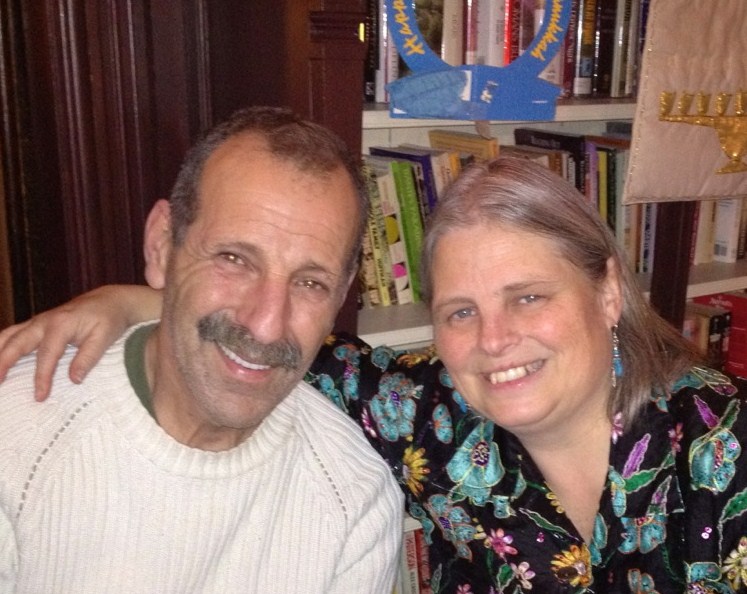Adopting Terminally Ill Children: One Family’s Story, Pt. 3

Adoption changes families in a myriad of ways. For the past two days, Sue Badeau has been sharing the story of how adopting 20 children. 3 of those children had terminal diagnoses, changed their family. In Part 1, you met Sue and her husband Hector and heard their adoption story. In Part 2, she focused on the experience of adopting children with special needs. Today, in Part 3, Sue shares lessons they learned as they grieved for their sons.
Adopting Terminally Ill Children: One Family’s Story, Pt. 3
Three Lessons Learned
- Everyone can heal and grow. Healing and growth may look different for each individual. We may never see the wholeness we are hoping for, but we can continue to work towards it. I learned this lesson at an early age from my grandfather as he showed me how he cared differently for the various plants in his vegetable garden so that each would have the best chance of growing and bearing fruit. I have come to understand that this analogy also applies to children—they are not all easy to grow, like zucchini, but then, what a boring garden it would be if we grew nothing but zucchini!
- There is as much value in the journey as in the destination. I know, I know, it sounds like a worn cliché, but we have found it to be true. Years ago, we went on a family hike and this message came home to me in a powerful way as I saw my small son Raj, who had been diagnosed with cerebral palsy and told that he would never walk, clambering along the hiking trail with his brothers and sisters. Years later as we experienced everything from teen pregnancy to a son in prison, I have had to remind myself again and again of this important lesson.
- While God does not “fix” everything in the sense of removing all obstacles, curing all diseases, or unlocking all disabling conditions, He does, indeed, make all things new. I learned this after experiencing a car wreck—I still have some scars and there are things I cannot do, yet I was changed by the experience and “made new” in important ways. And as I think about some my children viewed as most “damaged” by the world—whether physically or emotionally “damaged” by all kinds of brutal early life experiences, turning to drugs, early pregnancies or other outlets for their pain—I know that some people look at them and only see the wreck. But I like to look at them and see them as survivors. And I am always amazed how, in spite of the “damage” they have sustained, they, through God’s grace and healing power, are able to find amazing new ways to do old things that many of us take for granted—communication, relationships, eating, moving, getting through the day.
Toolkit for Parents Caring for Terminally Ill Children
If I were to try to offer words of encouragement to parents caring for children with severe special needs and terminal illnesses, I would urge them to create a toolkit for themselves to help them make it through the dark times. Into the toolkit would go at least the following tools:
- Knowledge – Get as much information about your child’s condition, current state-of-the-art research, and treatment options as you can.
- Self-care – When on an airplane, the safety instructions include these critical words, “When traveling with a child, put your own oxygen mask on first.” While this initially seems counterintuitive to parents, it is essential. You cannot care for anyone if you are out of oxygen yourself. Feed your soul—make a personal self-care plan and follow it.
- Intimacy and affection – Nurture your relationships with your spouse and other people in your life that are important to you. They need you, you need them, and together you will create a strong team (the cord of 3 strands in Ecclesiastes 4:12) to meet the needs of your special child(ren).
- Anger management techniques – Don’t deny anger when it comes—and it WILL come. Whether you become angry at the disease itself that plagues your child, the health care system, the schools, strangers on the street, yourself, or God, there will be times of anger. Learning to manage it in ways that are safe and healthy is key to coping with both the life and the grief you will experience on this journey.
- Play – I can’t say enough about the importance of laughter, silliness, and play with your children, the one who is dying as well as the others. “Laughter is the best medicine” may sound trite, but it is the gem of a significant truth.
- Pray – God the Father had to bury his only begotten son. Surely, he understands and knows our grief. Talk to him. And listen to him.
Your Thoughts about Adopting Terminally Ill Children
Now that you’ve read the final installment in this series about adopting terminally ill children, what thoughts do you have? Leave your insights and comments below. To keep up with the Badeau’s future adventures, visit their website at www.badeaufamily.com.
Do you like what you see at DifferentDream.com? You can receive more great content by subscribing to the quarterly Different Dream newsletter and signing up for the daily RSS feed delivered to your email inbox. You can sign up for the first in the pop-up box and the second at the bottom of this page.
By Sue Badeau
2 Comments
Submit a Comment
Subscribe for Updates from Jolene
Related Posts
Finding Joy in the Garden of Disability and Special Needs
Guest blogger Heather Johnson explains how she is always finding joy in the garden of disability and special needs.
When Caregiving Sparks Stress Instead of Joy, What Can You Do?
When caregiving sparks stress instead of joy, what can you do? Jolene explains practical ways to find the blessings in hard situations.
God Uses Whatever It Takes to Grow Our Reliance on Him
Jolene explains how in our circumstances, no matter how dire, God uses whatever it takes to grow our reliance on Him.






Hi Dana – this is wonderful that you have such a heart for children. None of us knew how it would be when our children died, and that was a big concern when we were considering it. Each death was very hard, we grieved and to some extent still do, very deeply. Yet without hesitation I can say we have no regrets and it was the best decision of our lives. We were enriched beyond measure. If this is truly what you want to do, be sure to let your homestudy agency know and then also register with AdoptUSKids and let them know – you need to basically “get the word out” that you are open to terminally-ill kids – it was always “through the adoption grapevine” that the social worker with the particular child on her caseload heard about our family and called us about the child she needed a family for that was terminally ill. If you email me privately, I will also connect you with a personal friend I have who has adopted many terminally ill children and she is in the middle of that grapevine. My email address is sue@suebadeau.com – – If you want to read more about how our family handled living with these children as well as coping with their deaths, let me know and I will get you a copy of our book, “Are We There Yet?” which goes in a lot of detail about all 3 of these dear ones.
For the last year, I have known that God is calling my husband and I to adopt terminally ill children. We adopted three healthy children last year. I have talked to him and our adopted children about this. They are all afraid of the feelings that will come. This obstacle will be overcome, I am sure. My problem is that I don’t know how to begin this process. How do I find the children? I know if this is truly God’s calling, my family will begin to feel the tug as well. Prayers for you and your family and thank you for any help you can give me.